From doping to politics to financial chaos, the modern Olympic Games have been sullied by actions off the playing fields, and Rio is no different. From filthy water to Zika to drug scandals, those issues dominated the news as the world watches and waits for the start of the 31st Olympiad on August 5.
Unfortunately for the thousands of athletes who have dedicated their lives to competing in the world's biggest quadrennial party, athletic achievement is quickly becoming a side note to the main event – how poorly prepared Brazil is to be in the spotlight. From the emergence of Zika virus to the collapse of Brazil's government and financial system to Russia’s complete disregard for fair competition, the Rio Games are shaping up to be remembered more for scandal than success.
Events unrelated to athletic achievement have marred multiple Olympic Games the past two centuries – none so heinous as the Black September massacre of Israeli athletes at the Munich Games in 1972. Where the Rio Games will fall on the list of most controversial Olympics remains to be seen, but Munich heads our list of Games most overshadowed by politics, corruption and crime.
Munich, 1972
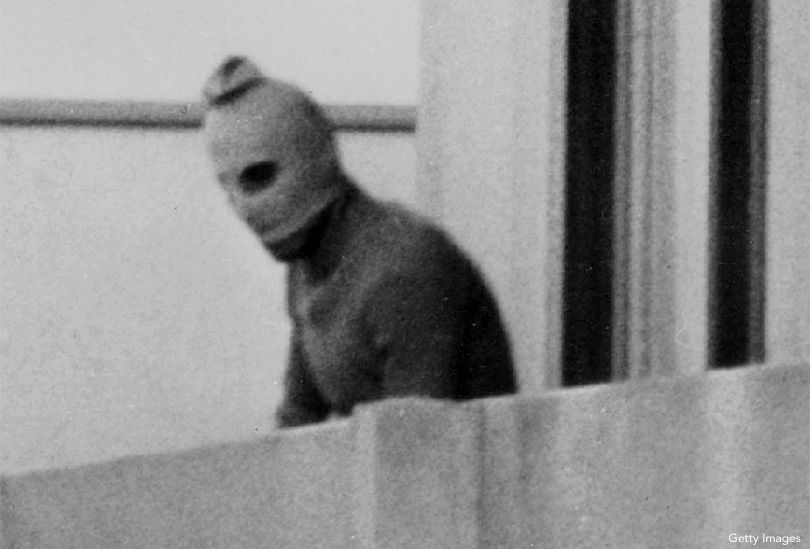
The first Olympics hosted by Germany since the 1936 Games in Nazi-run Berlin, Munich was supposed to be a coming out of sorts for democratic West Germany. But most people would be hard pressed to associate these Games with anything other than the murders of 11 Israelis at the hands of Palestinian terrorists. On the night of Sept. 5, eight Black September members broke into the Athletes' Village and took 11 Israeli athletes, coaches and officials captive. Two were killed immediately and the remaining nine were held hostage for 18 hours before being shot to death during a botched rescue attempt by the West German police. During the shootout, five of the terrorists and a West German policeman were also killed.
The three surviving terrorists were imprisoned but later released by the West German government in exchange for the return of a hijacked Lufthansa jet in October 1972. The killings set in motion likely the deadliest response to terrorism in history. Israel's elite Mossad put together the "Wrath of God" operation during which government-backed assassins hunted down and killed all suspected of involvement in the Munich Massacre.
Atlanta, 1996
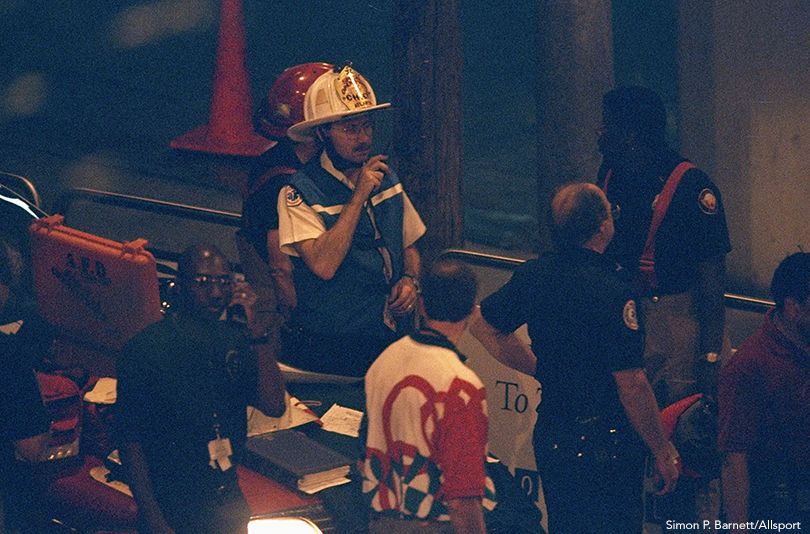
Americans may remember Atlanta for Muhammad Ali lighting the Olympic cauldron, Amy van Dyken's four swimming golds or Andre Agassi completing the career "Golden Slam," but it was also the second Olympics in history during which a murder occurred. On July 27, Eric Robert Rudolph detonated a bomb in the Centennial Olympic Park that killed one person and injured 111. A second person later died of a heart attack. Among the tragedies of the event, Atlanta's biggest hero, security guard Richard Jewell, who discovered the first bomb before detonation and began clearing the park, was falsely accused of setting the bombs. Jewell was the focus of the national media and the FBI before being cleared three months later. It took three more bombings and seven years before Rudolph was captured. Jewell died of natural causes in 2007.
Berlin, 1936
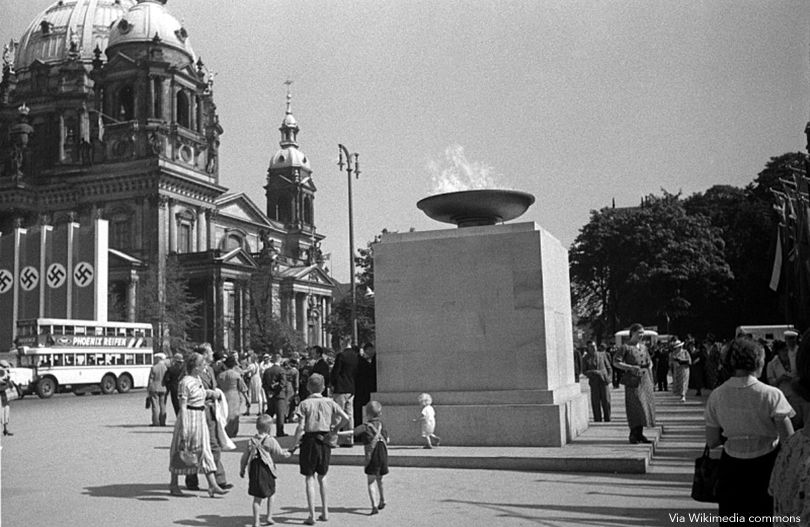
Jesse Owens is as synonymous with the Berlin Olympics as Hitler. Owens, possibly the most famous sprinter in history before Usain Bolt, won four gold medals but, as the story goes, was also snubbed by the Nazi chancellor, who refused to shake the hands of any medalists who were not German. Said Owens: "Hitler had a certain time to come to the stadium and a certain time to leave. It happened he had to leave before the victory ceremony after the 100 meters." Hitler's loss.
But the true tragedy of the Berlin Olympics was that the world bought into Hitler's dog-and-pony show. With mass persecutions occurring nationwide, Nazi Germany managed to put on a beautiful event that Hitler used as a stage to spread his propaganda. Before the Games, the Nazi Party demanded that Jews be excluded from the Games. While many countries asked their own Jewish athletes to skip the competition, others responded with a threat to boycott. Hitler acquiesced, allowing all races, religions and ethnicities to compete. The Berlin Olympics were the final Games before the world became engulfed by World War II. The next Games were held in 1948 in London.
Moscow, 1980
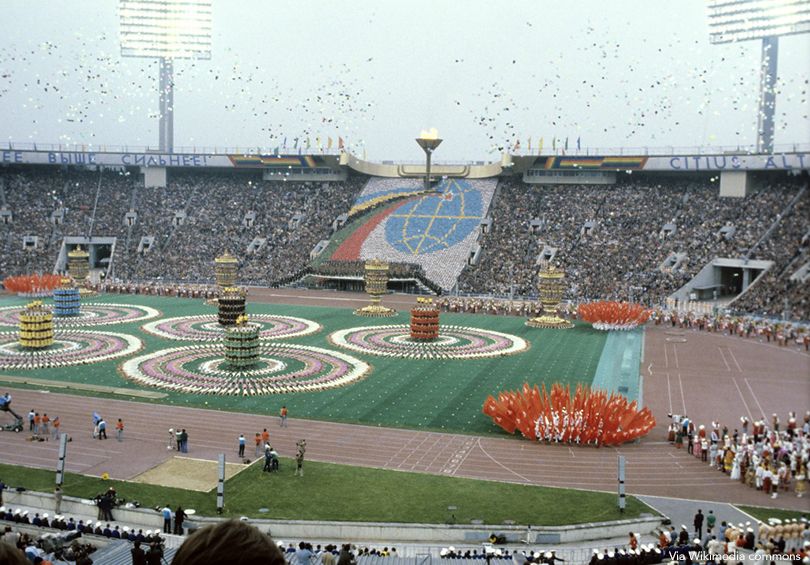
Politics truly ruined the Olympic experience for athletes around the world, but none more than athletes from the 65 nations that participated in a U.S.-led boycott. The Moscow Games were the first Olympics to be held in a Communist country (Yugoslavia later hosted in 1984 and China in 2008) and the first and only Summer Games to be held in Eastern Europe. The boycott itself was a statement against the Soviet invasion of Afghanistan. Eighty nations were represented in Moscow, making it the smallest Olympics since the 1956 Melbourne Games. Politically, the boycott did not force the USSR's hand and the war in Afghanistan continued. The Soviet Union retaliated by leading a lesser boycott of the 1984 Los Angeles Summer Games.
Sochi, 2014
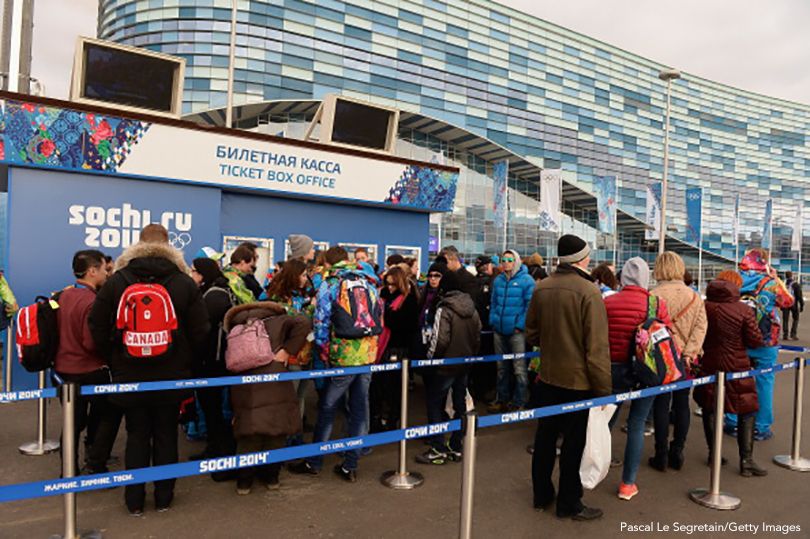
The first Winter Olympics held in Russia, the Sochi Games opened under clouds of controversy. With much of the nation living at or near poverty, Russian president Vladimir Putin made the Sochi Olympics the most expensive in history. During the bid process, the cost of the Sochi Games was estimated at $12 billion, but in the final analysis topped $51 billion. Much of the money was spent on infrastructure, including roads, rail and venues, some of which now sit unused. But a lot was lost to corruption. On the slopes and in the Olympic arenas, the doping scandal that continues to unfold two years later left many clean athletes without a fair shot. At least 15 Russian medalists have been confirmed as drug users and the cover-up goes to the highest levels of Russian government.
More By Jill R. Dorson:
-- How Strawberries And Cream Became Wimbledon Tradition
-- Behold The First Running Shoe From Kenya
-- This Nose Tackle Might Be NFL Player Least Likely To Blow His Fortune





